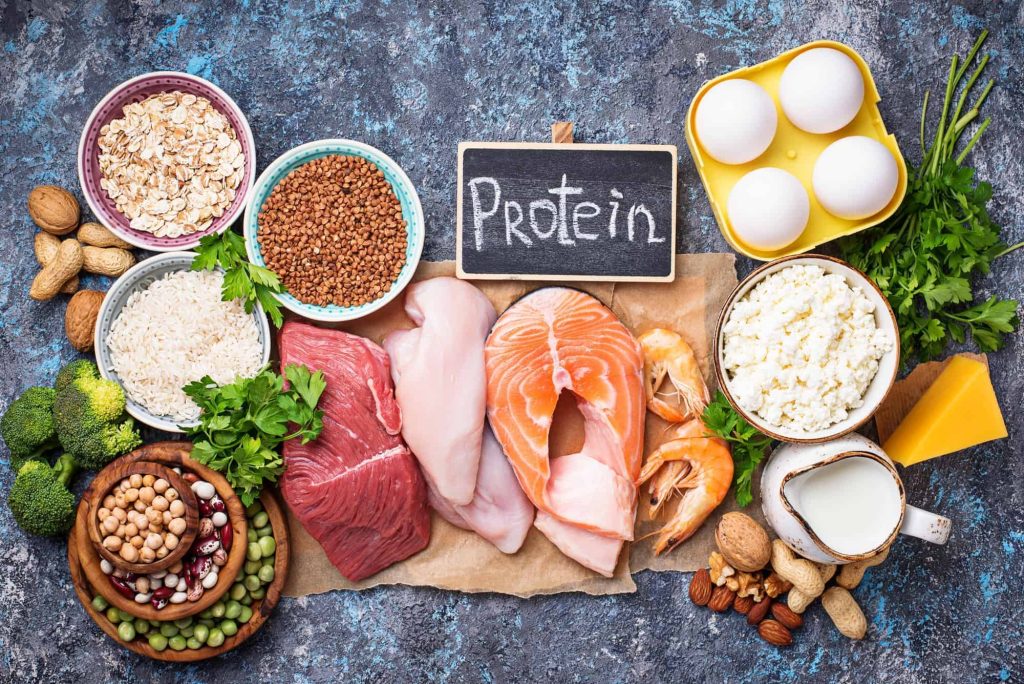
Maximizing muscle growth requires a balanced diet that provides the body with the necessary macronutrients. Macronutrients are the three main components of food: carbohydrates, proteins, and fats. Each of these macronutrients plays an important role in muscle growth and development. To ensure optimal muscle growth, it is important to calculate the correct macronutrient ratios.
The first step in calculating macronutrient ratios is to determine your daily caloric needs. This can be done by multiplying your body weight in pounds by 15-17. This will give you an estimate of the number of calories you need to consume each day to maintain your current weight. Once you have determined your daily caloric needs, you can begin to calculate the macronutrient ratios.
The ideal macronutrient ratio for muscle growth is 40% carbohydrates, 30% proteins, and 30% fats. To calculate the exact amount of each macronutrient you need to consume each day, divide your daily caloric needs by the percentage of each macronutrient. For example, if your daily caloric needs are 2,000 calories, you would need 800 calories from carbohydrates (2,000 x 0.4 = 800), 600 calories from proteins (2,000 x 0.3 = 600), and 600 calories from fats (2,000 x 0.3 = 600).
Once you have calculated the exact amount of each macronutrient you need to consume each day, you can begin to plan your meals. Aim to consume a variety of whole foods that are high in each macronutrient. For carbohydrates, focus on whole grains, fruits, and vegetables. For proteins, focus on lean meats, fish, eggs, and dairy products. For fats, focus on healthy sources such as nuts, seeds, and avocados.
By calculating the correct macronutrient ratios and consuming a variety of whole foods, you can ensure that your body is getting the nutrients it needs to maximize muscle growth.
The Best Foods for Building Muscle: A Comprehensive Guide
Building muscle is an important part of any fitness routine. Eating the right foods can help you reach your goals faster and more effectively. In this comprehensive guide, we will discuss the best foods for building muscle and how to incorporate them into your diet.
Protein is essential for muscle growth and repair. Foods high in protein include lean meats, fish, eggs, dairy products, legumes, nuts, and seeds. Eating a variety of these foods will ensure that you get all the essential amino acids your body needs to build muscle.
Healthy fats are also important for muscle growth. Foods high in healthy fats include avocados, olive oil, nuts, and seeds. These foods provide energy and help your body absorb vitamins and minerals.
Carbohydrates are the body’s main source of energy. Eating complex carbohydrates such as whole grains, fruits, and vegetables will provide your body with the energy it needs to build muscle.
Vitamins and minerals are essential for muscle growth and repair. Foods high in vitamins and minerals include dark leafy greens, citrus fruits, and cruciferous vegetables. Eating a variety of these foods will ensure that you get all the essential vitamins and minerals your body needs.
Finally, it is important to stay hydrated. Drinking plenty of water throughout the day will help your body absorb nutrients and flush out toxins.
By incorporating these foods into your diet, you can ensure that your body has all the nutrients it needs to build muscle. Eating a balanced diet and exercising regularly will help you reach your fitness goals faster and more effectively.
Meal Planning for Muscle Growth: Tips and Strategies for Successful Meal Prep and Planning
Meal planning is an essential part of any successful muscle-building program. Proper nutrition is key to achieving your fitness goals, and meal planning can help you stay on track and ensure that you are getting the right nutrients to fuel your workouts and support your muscle growth. Here are some tips and strategies for successful meal planning and prep.
1. Set realistic goals. Before you start meal planning, it’s important to set realistic goals for yourself. Consider your current fitness level, your budget, and the amount of time you have available for meal prep. This will help you create a plan that is achievable and sustainable.
2. Plan ahead. Meal planning is all about being prepared. Take some time each week to plan out your meals for the upcoming days. This will help you stay organized and ensure that you have the ingredients you need on hand.
3. Make a grocery list. Once you have your meal plan in place, make a grocery list of all the ingredients you need. This will help you stay focused and avoid impulse purchases.
4. Prep ahead. Meal prepping is a great way to save time and ensure that you have healthy meals ready to go. Consider prepping meals for the week ahead of time, such as chopping vegetables, marinating proteins, and pre-cooking grains.
5. Get creative. Don’t be afraid to get creative with your meal planning. Try new recipes, experiment with different flavors, and find ways to make healthy meals that you actually enjoy.
Meal planning and prep can be a great way to support your muscle-building goals. With a little bit of planning and preparation, you can ensure that you are getting the right nutrients to fuel your workouts and support your muscle growth.

Leave a Reply